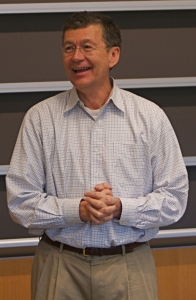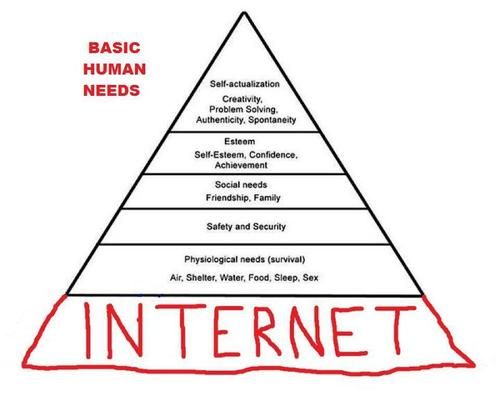ClassColloquium 3: Reed Hundt on the Future of Communication: Data, Privacy, and State Control
Editor’s Note: Reed Hundt was Chairman of the FCC when the Telecommunications Act of 1996 was passed, the first update to telecoms regulation in over 60 years. Reed worked tirelessly to get the legislation enacted and then successfully implemented. Is it time for another change?
Class Colloquium: Live Presentation, plus Q&A
In the third of our series of Class Colloquia, classmate Reed Hundt will talk with us privately about what must be done to address telecommunications developments in the 21st century.
His signature policy overhaul in 1996 unleashed the explosive growth of the Internet. But much has changed since then:
- Widespread adoption of broadband
- Migration of retail sales to e-commerce (Amazon)
- The advent of social networks (Facebook)
- The explosion of search (Google)
- Ubiquitous presence of smartphones
- Remote work and the gig economy
- “Deep fake” videos, disinformation, and “information warfare”
- Dominance by a few firms in almost every form of communication
- “Big Data” and the increasing dangers of a “surveillance state.”
 For every communication advance, there have been costs: teenage depression and rising suicides; evisceration of traditional journalism; “echo chambers” driving polarization and undermining trust, and so on.
For every communication advance, there have been costs: teenage depression and rising suicides; evisceration of traditional journalism; “echo chambers” driving polarization and undermining trust, and so on.
Some observers think antitrust laws should be used to “break up” Facebook, Google, Amazon and others. A proposed overhaul of Section 230 of the Telecommunications Act has implications for free speech, political bias, undue influence and a range of other issues.
Reed will give us his perspective about where we are today, how public policy should change, and how our communications future will unfold given the players and the incentives. Much is at stake, from the durability of our democracy, to how we prepare for the future, and the health of our grandchildren.
Click to register for this meeting:
https://zoom.us/meeting/register/tJcpdOytqjovHNaOZv1EW9PcONY3HO639JbV
After registering, you will receive a confirmation by email containing information about joining the meeting.
We will start promply, so please JOIN the meeting 5-10 minutes early.
Breakout Session information: After the one-hour main session, we will use the Zoom “breakout rooms” to break into separate, 30-minute-ish meetings by college. There, you will be able to socialize with people from your residential college, as well as discuss anything arising from Reed’s remarks.
I hope you can attend. Don’t forget to register and mark your calendars.
 Last, if you have any questions for Reed, you can leave them on this quick-survey form.
Last, if you have any questions for Reed, you can leave them on this quick-survey form.
BTW, if you haven’t used Zoom yet, Editor Wayne Willis has written a little how-to article to help you get over any technical concerns or questions; and if you need some personal support, he’s happy to call you and walk you through getting set up … for reasons outlined in that article. Just ping him at support@Yale1969.org prior to 7/22.
